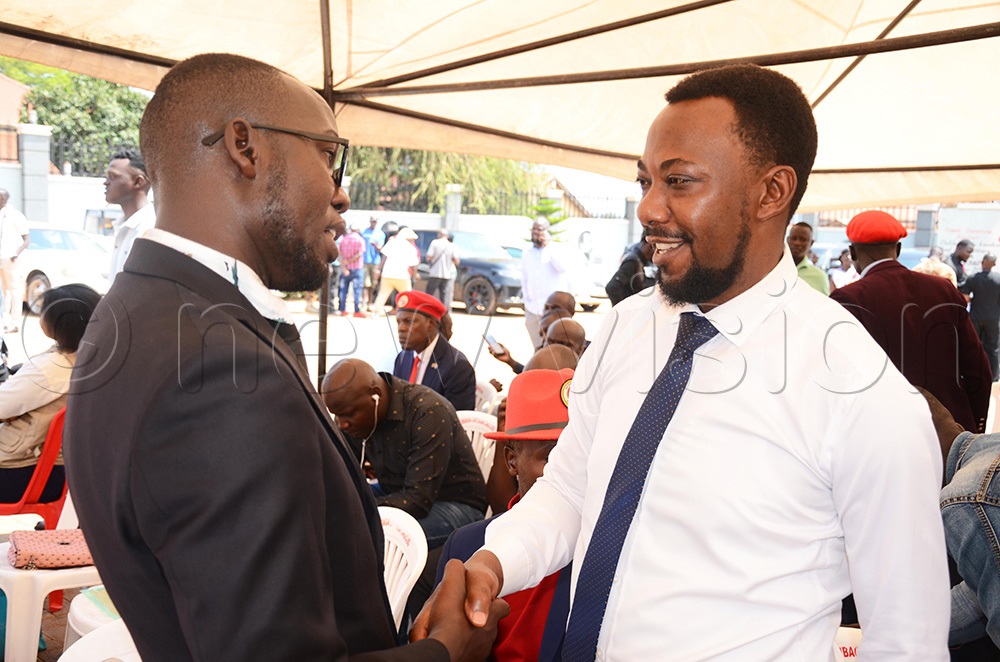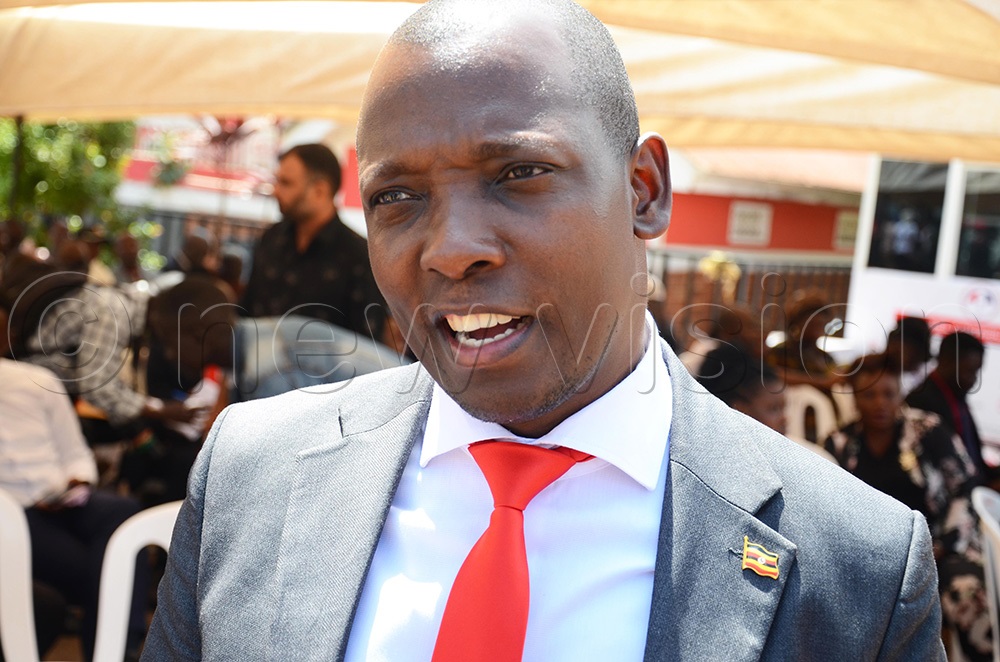NUP starts MP flag bearer vetting process
The exercise, which began on Monday, September 15, 2025, at the party headquarters in Makerere–Kavule, Kampala, is designed to ensure NUP fields the most qualified candidates. The process will run until 21 September.
Wakiso Woman MP, Betty Naluyima coming from the vetting room at NUP party headquarters at Makerere Kavule. (Photo by Isaac Nuwagaba)
___________________
The National Unity Platform (NUP) party has commenced its vetting process for parliamentary flag bearers to identify strong and reliable candidates to represent Uganda’s largest opposition party in the 2026 general elections.
The exercise, which began on Monday, September 15, 2025, at the party headquarters in Makerere–Kavule, Kampala, is designed to ensure NUP fields the most qualified candidates. The process will run until 21 September.
With the prospect of securing the “electrifying car,” flag bearers from Wakiso district turned up in large numbers, while representation from the West Nile and Kigezi sub-regions was minimal.
The Busiro South MP Charles Matovu shaking hands with a supporter during the vetting exercise at NUP party headquarters in Makerere Kavule on Monday. (Photo by Isaac Nuwagaba)
The NUP Electoral Management Committee (EMC) unveiled the vetting programme for Members of Parliament (MPs) as part of its preparations for the 2026 polls. This follows the clearance of several local government leaders and councillors a fortnight ago.
According to EMC chairperson Harriet Chemutai, the vetting exercise for MPs had initially been scheduled to start on August 20 but was pushed to September 15–22 due to adjustments in the Electoral Commission’s nomination timetable.
“We have adjusted our electoral road map following EC's decision in the national electoral process changes,” she confirmed.
Chemutai explained that the vetting programme is a crucial step in selecting candidates who embody the party’s principles and values, emphasising qualifications, integrity and commitment to public service.
“NUP aims to present a credible alternative to the ruling party in the 2026 elections,” she stressed.
The exercise continues region by region throughout the week, covering Kampala, Acholi, Ankole, Greater Masaka, Lango, Tooro, Greater Mpigi, Karamoja, Bunyoro, Greater Mukono, Sebei, Teso and Rwenzori, and ending with Greater Mubende, Bugisu, Bukedi, Luwero and Busoga.
“On Saturday, we shall vet Greater Mubende, Bugisu and Bukedi. Then on Sunday, we will end with Greater Luwero and Busoga all at NUP party headquarters, starting from morning to evening,” Chemutai said.
Party president Robert Kyagulanyi last week warned against favouritism and undue influence in the exercise, calling for discipline and clarity in the selection process.
The flag bearers, including mayors of all five city divisions and their councillors, were subjected to a rigorous one-month vetting process involving over 7,800 candidates.
“We nominated one presidential candidate, Robert Kyagulanyi Ssentamu, 940 MPs, 204 district women MPs, 171 district chairpersons, 343 municipality and city mayors, 3450 division and sub-county chairpersons and councillors, 1963 division and sub-county women councillors, 380 city councillors and 333 city women councillors,” Chemutai revealed.
She added that public opinion plays a role in the process. “The public knows who is NUP and who is the National Resistance Movement (NRM) party supporters and sympathisers, and the report in the public field convinces us to determine who is against the people or working for them,” she observed.
Chemutai noted that vetted MPs are expected to campaign vigorously for the party’s presidential candidate, Kyagulanyi, and other NUP candidates nationwide.
MP Nyeko steps aside
Makindye East MP Derrick Nyeko recently withdrew from the race under unclear circumstances. Party sources suggested he may have stepped down after learning he would not be awarded the flag.
“During the closed-door vetting, Nyeko got only 39% for vetting by the NUP electoral management committee and 39% on the ground, which meant that he was a failure and no longer had public appeal to the voters,” a leaked vetting list claimed.
The Kyadondo East MP, Muwada Nkunyingi speaking to journalists after being vetted at NUP party headquarters at Makerere Kavule. (Photo by Isaac Nuwagaba)
“I remain the man of no corruption, no problems. I have served with honour, respect, and a deep commitment never to betray the trust of your vote,” Nyeko insisted.
His short tenure as MP has been marked by advocacy for social justice, youth empowerment and governance reforms. However, he reportedly did not align fully with the party’s revolutionary schemes.
Voices from vetted MPs
Kyadondo East MP Muwada Nkunyingi condemned the abduction of NUP aspirants ahead of 2026, saying such acts undermine Uganda’s democratic principles. He pledged to continue defending Ugandans’ rights both locally and internationally.
Wakiso Woman MP Betty Naluyima vowed to intensify her fight against land grabbing in the district, which she said had left many residents landless.
“My new agenda shall include a poverty alleviation program for the youth and the women who still lack clear access to land and jobs,” Naluyima said.
Busiro East MP aspirant Emmanuel Matovu expressed hope that the vetting process would be fair and transparent. He pledged to prioritise poverty alleviation if selected over incumbent Medard Sseggona, who he alleged leaned towards the Democratic Front due to his ties with former DP leader Mathias Mpuuga.
Sseggona dismissed the claims, asserting his long-standing contribution to NUP and his experience in leadership.
The vetting process is a two-tier system, weighing 40% performance before the vetting committee and 60% from grassroots consultations.